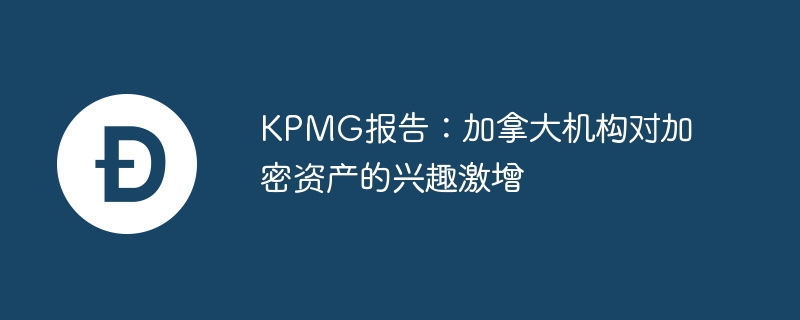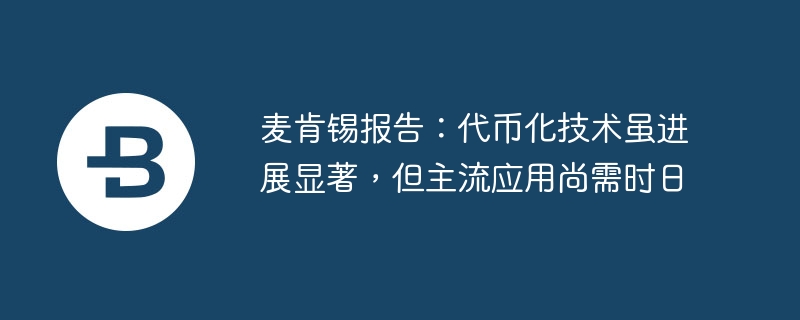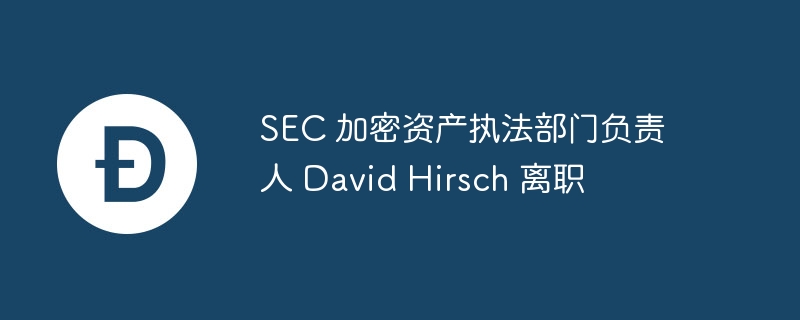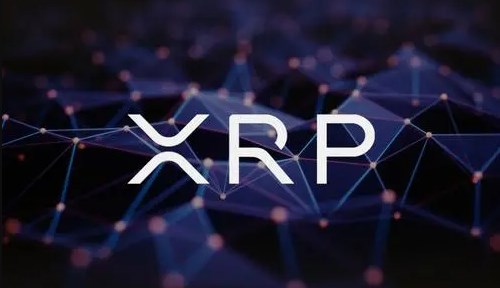 web3.0
web3.0 McKinsey report: Although tokenization technology has made significant progress, mainstream application will still take time
McKinsey report: Although tokenization technology has made significant progress, mainstream application will still take time
Global management consulting firm McKinsey & Company provided insights into the current status of tokenization of financial assets in its research report released on June 20.
The report points out that although tokenization technology has developed to a critical tipping point, showing technological maturity and measurable economic benefits, its widespread application in the mainstream market still faces many challenges.
McKinsey emphasized that the trend of asset digitization is becoming increasingly obvious. With the maturity of technology and the emergence of economic benefits, this process seems irreversible. However, even with this positive momentum, widespread adoption of tokenization technology still faces obstacles that prevent it from becoming mainstream in the market.
The report mentioned that tokenization has transitioned from the initial pilot project stage to large-scale deployment, and the monthly transaction volume of some large-scale applications has reached trillions of dollars.
Despite this progress, McKinsey notes that mainstream adoption of tokenized technologies remains elusive due to the so-called “cold start” problem and other regulatory, technical and operational hurdles. These issues include issues such as limitations on liquidity and trading volumes, which limit and hinder the establishment of a robust and active market.
“Cold start” problem: liquidity and trading limitations
In its report, McKinsey specifically highlighted the issue of “cold starts” in the tokenization process, which is a major challenge that involves limited liquidity and trading volumes, both of which are critical to building a healthy and robust market. Crucial. Without the active participation of issuers and investors, the promised advantages of tokenization technology, such as increased asset liquidity, faster transaction settlement, and improved market transparency, will be difficult to realize.
At the same time, the report also mentioned that the cold start problem is essentially a "chicken or egg" dilemma. Due to the insufficient number of tokenized assets in the market, potential investors may be hesitant due to concerns about illiquidity and lack of market depth.
To overcome this challenge, McKinsey believes there will be a need for use cases that deliver clear and demonstrable benefits, such as reduced transaction costs, improved market efficiency and expanded market access, that can demonstrate the real value of tokenized technology.
The report also cited the example of tokenized money market funds that have attracted more than $1 billion in assets under management, indicating that in some areas, tokenized technology has begun to show its potential.
The growth prospects and adoption wave of tokenized assets
Meanwhile, McKinsey made optimistic predictions about the future growth of tokenized assets in its report. The report predicts that by 2030, the total market value of tokenized assets is expected to reach US$2 trillion. If the market develops more optimistically, this number may even double to US$4 trillion. This forecast reflects the contribution of asset classes such as mutual funds, bonds, exchange-traded notes (ETNs), loans, and securitizations to the tokenization trend.The report also pointed out that the application of blockchain technology will be carried out in stages, and will initially focus on asset classes that can provide reliable investment returns and scalability. Because the introduction of blockchain technology will be a gradual process, the market will give priority to areas that can quickly achieve efficiency and value gains.
The McKinsey report also noted some early successes, such as tokenized money market funds that have attracted more than $1 billion in assets under management. Additionally, in the lending space, blockchain-based platforms such as Figure Technologies have facilitated billions of dollars in loan originations, demonstrating the potential of blockchain technology to increase efficiency and transparency.
McKinsey concluded by stressing that the development of tokenization requires close cooperation between financial institutions and market infrastructure players. These collaborations are critical to establishing minimum viable value chains. At the same time, financial institutions need to evaluate their product suites and combine the strategic priorities derived from these evaluations with market opportunities to determine which asset classes can benefit most from tokenization.
Conclusion
McKinsey's research report reveals that although financial asset tokenization technology has made significant progress, it still needs to overcome a series of challenges including the "cold start" problem to achieve widespread application in the mainstream market. However, despite the obstacles, the report is optimistic about the growth of the market value of tokenized assets in the 2030s, predicting that it can reach $2 trillion or more. This growth prospect is due to the gradual maturity of blockchain technology and the gradual tokenization of asset classes, which heralds new changes in the financial market.In order to seize the opportunities brought by tokenization technology, financial institutions and market participants need to strengthen cooperation and jointly build an ecosystem that supports the steady growth of tokenized assets. This requires them to deeply evaluate and identify the assets with the greatest potential for tokenization, while ensuring that strategy is closely aligned with market opportunities. Through this coordinated effort, tokenization technology is expected to unlock its full potential in increasing market efficiency and transparency, breathing new life into the future development of the financial services industry.
The above is the detailed content of McKinsey report: Although tokenization technology has made significant progress, mainstream application will still take time. For more information, please follow other related articles on the PHP Chinese website!
 2025年9个现实世界资产RWA赛道潜力项目盘点Mar 04, 2025 am 06:54 AM
2025年9个现实世界资产RWA赛道潜力项目盘点Mar 04, 2025 am 06:54 AMRWA(现实世界资产)赛道深度解析及2025年潜力项目盘点RWA(RealWorldAsset,现实世界资产)代币化正迅速崛起,市场规模持续扩张。根据RWA.xyz数据,过去一年TVL(总锁仓价值)增长95%,近三个月更是新增40亿美元,增长26%。目前市场主要由私募信贷(70%)和美国国债支持的代币化资产(21%)构成,传统金融资产与区块链技术的融合日益加深。本文将重点分析RWA赛道的机遇,并推荐九个2025年值得关注的潜力项目。什么是RWA赛道?RWA指的是现实世界中拥有价值的资产,既包
 KPMG报告:加拿大机构对加密资产的兴趣激增Apr 28, 2024 pm 12:01 PM
KPMG报告:加拿大机构对加密资产的兴趣激增Apr 28, 2024 pm 12:01 PM毕马威会计师事务所(KPMG)在加拿大进行的调查显示,持有加密资产的投资者数量激增了75%,与两年前的29%相比有了显著增长。KPMG的最新调查结果显示,加拿大的机构投资者在上一年度相比之前的牛市周期显著增加了他们对加密货币的投资敞口。这一趋势反映了机构投资者对加密货币领域兴趣的增长,以及他们对这种新兴资产类别的接受度提高。这家咨询集团开展的半年一次的“机构对加密资产采纳情况”调查共收集到了65份反馈。参与调查的有31家资产管理规模逾5亿美元的机构投资者和34家金融服务机构。该调查展现了加拿大机
 什么是非同质化代币(NFT)?一文了解NFT常见的分类方式Jan 08, 2025 pm 09:06 PM
什么是非同质化代币(NFT)?一文了解NFT常见的分类方式Jan 08, 2025 pm 09:06 PM非同质化代币(NFT)是独一无二的数字资产,其所有权和稀缺性由区块链技术保障。它们不可分割,不同于可互换的同质化代币。NFT 可分为多个常见类别,包括:艺术和收藏品(如数字艺术、收藏品)、游戏内资产(如皮肤、虚拟土地)、虚拟房地产、证明凭证(如数字证书、学历证明)、以及实物资产代币化(如房地产、车辆)。
 麦肯锡报告:代币化技术虽进展显著,但主流应用尚需时日Jun 22, 2024 pm 02:31 PM
麦肯锡报告:代币化技术虽进展显著,但主流应用尚需时日Jun 22, 2024 pm 02:31 PM全球管理咨询公司麦肯锡麦肯锡在其6月20日发布的研究报告中提出了对金融资产代币化发展现状的深刻见解。报告指出,尽管代币化技术已经发展到一个关键的临界点,显示出技术成熟和经济效益的可衡量性,其在主流市场的广泛应用仍然面临诸多挑战。麦肯锡强调,资产数字化的趋势日益明显,随着技术的成熟度和经济效益的显现,使得这一进程看似不可逆转。然而,即便存在这种积极的势头,代币化技术的广泛应用仍然面临障碍,这些障碍阻碍了其成为市场主流的步伐。报告中提到,代币化已经从初期的试点项目阶段过渡到规模部署,一些大规模应用的
 SEC 加密资产执法部门负责人 David Hirsch 离职Jun 19, 2024 am 10:17 AM
SEC 加密资产执法部门负责人 David Hirsch 离职Jun 19, 2024 am 10:17 AMDavidHirsch,自2022年10月起担任美国证券交易委员会(SEC)加密资产执法部门的负责人,在任期内指导SEC处理了至少45起与加密货币相关的案件。6月17日,Hirsch宣布离职,结束了他在SEC近九年的执法生涯。Hirsch在离职声明中表达了对在加密资产和网络部门所做工作的自豪感。他在SEC的职业生涯还包括自2015年起作为SEC沃斯堡地区办事处的执法律师,以及在2020年9月至2022年10月期间担任SEC委员CarolineCrenshaw(以批判性态度看待加密货币而知名)的法
 一文了解瑞波币是什么币Sep 30, 2024 pm 09:03 PM
一文了解瑞波币是什么币Sep 30, 2024 pm 09:03 PM瑞波币(XRP)是一种数字货币,用于快速、低成本的跨境支付和资产代币化。它是由位于美国的RippleLabsInc.发行,但本身是分散的且不受任何国家的控制。
 币圈科普:一文介绍Unichain有什么用Oct 17, 2024 pm 05:19 PM
币圈科普:一文介绍Unichain有什么用Oct 17, 2024 pm 05:19 PMUnichain 是一种基于区块链技术的开放式、可扩展的平台,旨在为各种行业提供基础设施和解决方案。本文将深入介绍 Unichain 的功能和优势,探讨它在医疗保健、供应链管理、金融等领域的应用。
 瑞波币可以用来做什么?Sep 30, 2024 pm 08:42 PM
瑞波币可以用来做什么?Sep 30, 2024 pm 08:42 PM瑞波币的应用场景瑞波币(XRP)是瑞波币网络的原生数字货币,具有广泛的应用场景,包括:1.跨境汇款瑞波币的最快交易速度可达5秒,费用低至0.00001美元,使其成为跨境汇款的理想选择。它消除了传统汇款方式的漫长等待时间和高额费用。2.支付通道瑞波币可以作为企业和个人之间的支付通道。它允许不同货币之间的即时兑换,简化了跨境支付流程。3.流动性管理银行和金融机构可以使用瑞波币来管理其流动性。通过持有瑞波币,他们可以快速且低成本地兑换不同货币,满足客户的需求。4.供应链管理瑞波币可用于简化供应链管理。

Hot AI Tools

Undresser.AI Undress
AI-powered app for creating realistic nude photos

AI Clothes Remover
Online AI tool for removing clothes from photos.

Undress AI Tool
Undress images for free

Clothoff.io
AI clothes remover

AI Hentai Generator
Generate AI Hentai for free.

Hot Article

Hot Tools

DVWA
Damn Vulnerable Web App (DVWA) is a PHP/MySQL web application that is very vulnerable. Its main goals are to be an aid for security professionals to test their skills and tools in a legal environment, to help web developers better understand the process of securing web applications, and to help teachers/students teach/learn in a classroom environment Web application security. The goal of DVWA is to practice some of the most common web vulnerabilities through a simple and straightforward interface, with varying degrees of difficulty. Please note that this software

Atom editor mac version download
The most popular open source editor

Dreamweaver Mac version
Visual web development tools

PhpStorm Mac version
The latest (2018.2.1) professional PHP integrated development tool

SecLists
SecLists is the ultimate security tester's companion. It is a collection of various types of lists that are frequently used during security assessments, all in one place. SecLists helps make security testing more efficient and productive by conveniently providing all the lists a security tester might need. List types include usernames, passwords, URLs, fuzzing payloads, sensitive data patterns, web shells, and more. The tester can simply pull this repository onto a new test machine and he will have access to every type of list he needs.





